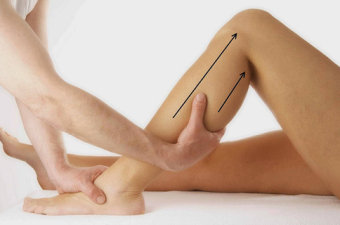Numbness of limbs is a common condition that affects many people. It is characterized by a tingling sensation or a loss of sensation in the affected limb. Numbness can occur in any part of the body, but it is most commonly experienced in the hands, arms, feet, and legs. In this article, we will discuss the causes and treatment options for numbness of limbs, with a focus on numbness while sleeping.
Anatomy of the Limbs
The limbs consist of bones, muscles, nerves, and blood vessels. Nerves carry signals from the brain to the muscles and skin, allowing us to feel sensations and move our limbs. Blood vessels supply oxygen and nutrients to the limbs, allowing them to function properly.
Causes of Numbness of Limbs
Numbness of limbs can be caused by a variety of factors, including:
- Pinched nerves
- Injury or trauma
- Poor circulation
- Vitamin deficiencies
- Diabetes
- Multiple sclerosis
- Raynaud’s disease
- Peripheral neuropathy
Numbness of Limbs While Sleeping
Numbness of limbs while sleeping is a common complaint. This can be caused by sleeping in a position that puts pressure on the nerves, such as sleeping on the arm. It can also be caused by poor circulation or an underlying medical condition.
Treatment Options for Numbness of Limbs
Treatment options for numbness of limbs depend on the underlying cause. For temporary numbness caused by sleeping in a position that puts pressure on the nerves, changing sleeping positions or using a different mattress or pillow may help. For more serious cases, treatment options may include physical therapy, chiropractic, medications, or surgery.
Prevention of Numbness of Limbs
Preventing numbness of limbs involves maintaining good circulation and avoiding positions that put pressure on the nerves. This can include regular exercise, stretching, and taking frequent breaks during prolonged periods of sitting or standing.
Numbness of limbs is a common condition that can be caused by a variety of factors. While it is often temporary, it can also be a sign of an underlying medical condition. Understanding the causes and treatment options for numbness of limbs is important for managing this condition. If you are experiencing numbness of limbs, it is important to consult with a healthcare professional for an accurate diagnosis and appropriate treatment plan. With proper care and management, most people are able to recover from numbness of limbs and return to their regular activities.
Chiropractic care focuses on the health and function of the spine and nervous system. The spine is responsible for protecting the spinal cord, which is the main pathway for nerve signals to travel between the brain and the rest of the body. When the spine is misaligned, it can put pressure on the nerves, causing numbness and other symptoms.
Chiropractic adjustments involve gentle manipulation of the spine to restore proper alignment and function. This can help to relieve pressure on the nerves and improve circulation, which can alleviate symptoms of numbness of limbs.










